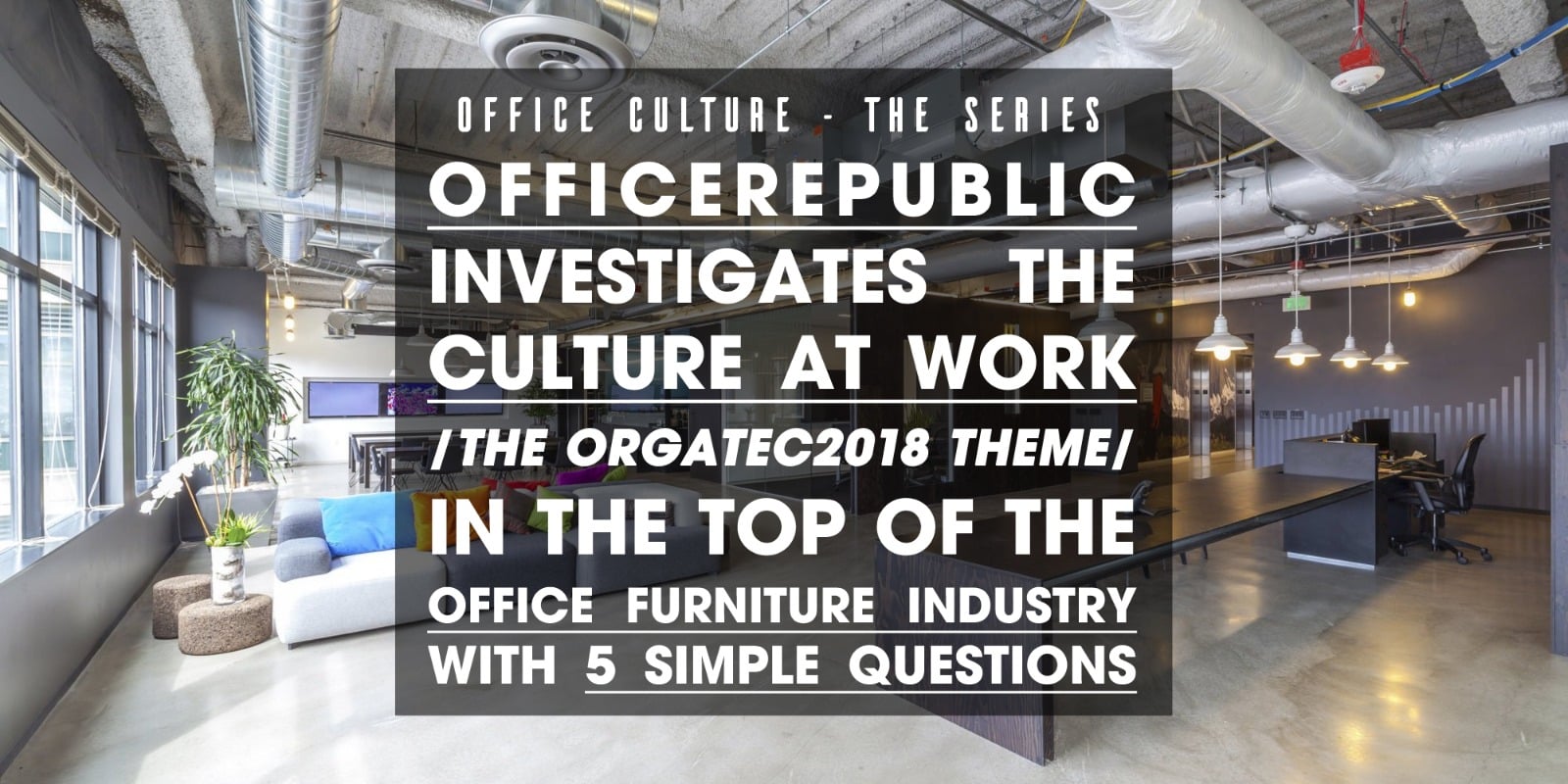This years Orgatec is about culture@work and visionary concepts for a new working culture. Officerepublic is interested in how participants in the Orgatec describe the culture in their own company and their vision on the workplace of the future. To clarify this vision, we asked five questions to more than 400 participating office furniture manufacturers. We publish the answers we receive in a series on OfficeRepublic: “Culture @”. The first to answer the five questions is Roderik Mos, CEO of Dataflex
#1 – Culture is sometimes defined as all that man produces in material and immaterial sense. The culture of a people, or a group of people, includes its beliefs, values and customs. If we look at your company, how do you describe the current culture in your company?
Roderik Mos: Usually the average age of staff says a lot about the company culture. Younger people have different values or treasure other things than older people do. They care more about inclusion, sustainability, innovation, development and transparency. Older staff usually care more about security, success, stability and prosperity. By having a great mix of different cultures, ages, races and skills, Dataflex has the best of all worlds and has balanced and combined those values wonderfully. People should work were they resonate with a culture and aren’t happy if it doesn’t resemble their values and beliefs.
Dataflex is an open, transparent and caring company. We care about our planet, our customers, our staff and other cultures also, in other parts of the world. We believe we need to make a sustainable change in the way the industry works and are very motivated to do so. Fairness and honesty in the entire supply chain goes a long way. We do our utmost to create products and services that make an actual difference for our customers”
#2 – What changes do you see taking place in the culture within companies in the coming years? Which external and internal developments will affect our ‘work culture’?
I see companies investing heavily to create the home away from home. Creating spaces in places where people can share ideas, collaborate and cultivate. It seems nowadays offices need to be hip and happening, to attract new talent and keep them invested in the company. But if a company’s culture doesn’t reflect that, it will fail. Technology greatly improves our ability to connect with each other, but different media and devices need different approaches and or rules. I think a mix of age and background will help to overcome typical barriers between the way people work. Millenials for instance have a very different view of what is a socially acceptable way of communicating with customers or suppliers. Whereas the way baby-boomers communicate is seen as slow and time consuming. Whatsapp versus email, or stand-ups versus meetings. Culture is the core of any company, but must evolve and adapt to include more contrasting beliefs and shape new ones.
#3 – What developments can we expect from your company in the coming years?
We’ll keep developing innovative products and ideas that will help shape a dynamic and inclusive company culture. Catering to the technological needs of the young, and facilitating ease of use and simplicity for all.
A great example is the trend we’ve started with Link, our USB-C docking station. The way it works and how it’s designed is very complex, only to have it be as easy to use as possible. There are a few other surprises in our pipeline. Maybe we’ll share that on Orgatec.
#4 – Do we already see some of that development on the coming Orgatec, and what will be the eye-catcher of your trade show presentation?
We’ve completely perfected Link and Bento, which we showcased at Orgatec 2016 as just two proof of principle concepts. We closely listened to all the visitor feedback and I genuinely feel they’re the better for it. Something I’m particularly proud of is the product and company LCA’s (life cycle analysis) we’ve made. We went far to be as open and transparent as we possibly could. Including data from our most important suppliers, to not only look at our footprint but the entire carbon footprint our products have/leave. That’s the only way to adequately measure your global environmental impact. I think we might be the first in our industry (ergonomic accessories) that shares that level of detail and has LCA’s of nearly every product we make. We’re exceptionally proud of that. Anybody that visits Orgatec should come by to learn more, and mostly seewhy we need all this data. Our LCA’s are just the first step we’re taking to achieve our goals in reducing our global footprint, but give us a terrific amount of insight on what our next move should be. This approach allows us to cleverly invest exactly there, where the highest impacts can be achieved. We have big plans moving forward and love to share those with everyone that visits us!
#5 – Where can you be found on the Orgatec?
As always, Hall 6.1 stand A051

